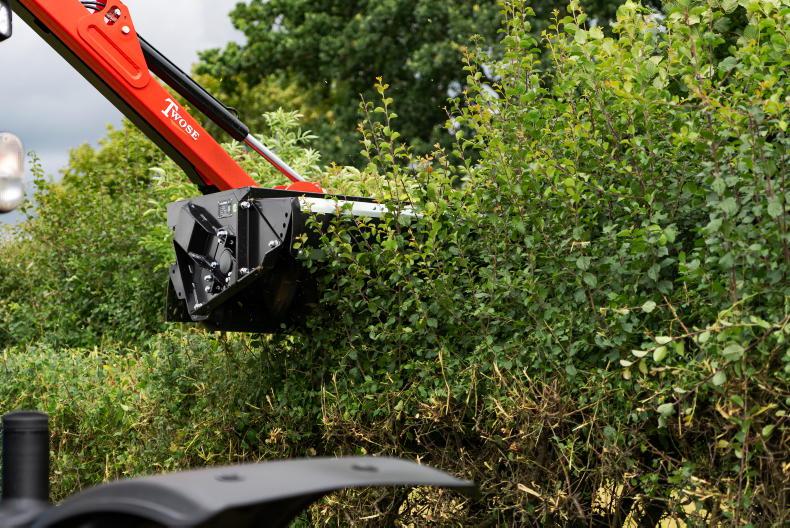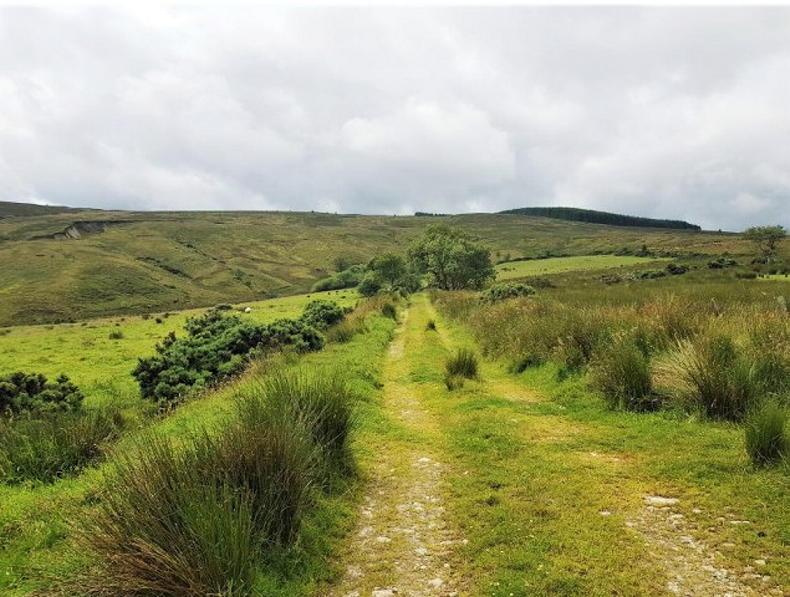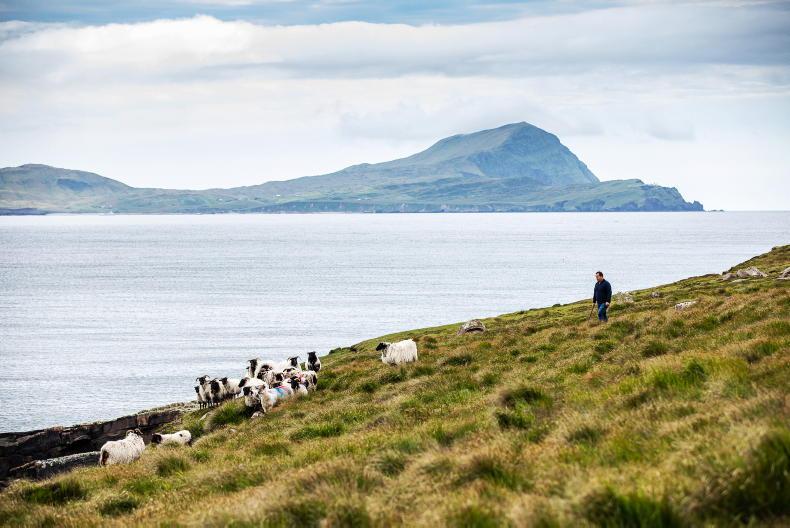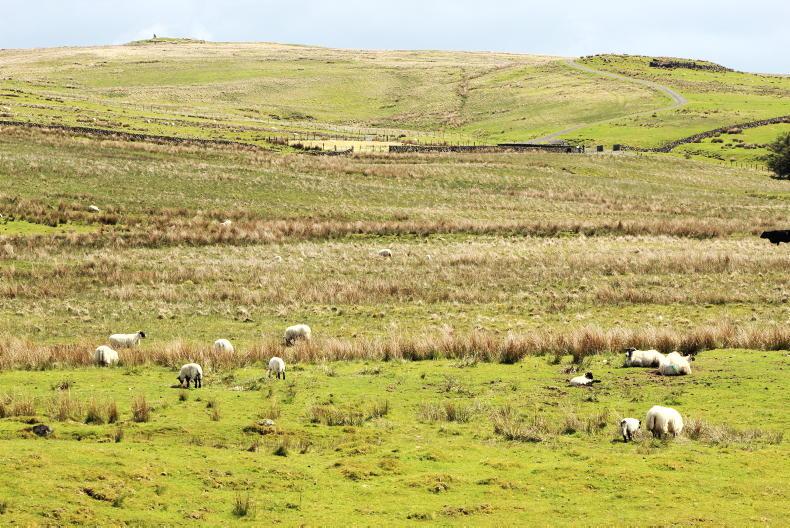The Sustainable Upland Agri-environmental Scheme (SUAS) has been a long time in the making with extensive work put in over the past few years by the Uplands Council to get it to this point.
Listen to "Wicklow Uplands Council on the new Sustainable Upland Agri-environmental Scheme" on Spreaker.
At the meeting a raft of measures that will be included in the scheme were outlined to farmers. One area targeted is shepherding with commonage groups in the scheme eligible to receive a payment of €120 per shepherding event, twice a week for six months. This would lead to a maximum payment of €5,760 per commonage group per year. “The hope is that this payment will encourage farmers to go up to the hills to shepherd their flock,” according to Brian Dunne of the Wicklow Uplands Council. “Additionally if someone is not able to go up they can use this money to pay someone else to go up. It might encourage young people to get out on the hills.”
As an interesting term of the scheme a GPS device will be made available to farmers shepherding as a way of keeping records, it will also hopefully give an indication as to where on the mountains that sheep spend their time grazing.
Payments for work done
“The payments that are made through the scheme will only be paid for works that are done,” Brian stressed. Farmers will be paid €14.50/hour for the work that they do through the scheme whether it is manual work, working on the hills, attending meetings or hosting open days, for example. Funding of approximately €2,000 per commonage group will be provided to train members of the group to carry out controlled burning correctly. Payments will also be made to carry out mechanical swiping or cutting of vegetation on the hills. The installation of gathering pens would also be something that would be covered in the scheme according to Brian. “For any farmers who would put cattle up on the commonages a payment of €300/unit would be made, and these must graze for four months of the year, the payment is to cover for loss of productivity.
“The important thing to note is that payments will be made for works completed, there will be no fine, no penalties,” Brian said. To gain access to the pilot scheme the commonage group will really have to work together to develop a plan for the commonage.
“Its about local solutions for local problems,” according to Declan Byrne from Teagasc. “The plans are not set in stone and can be adapted during the course of the five year scheme.”
As the project is only a pilot scheme then there is only scope to bring approximately 40 farmers into the scheme, these will be distributed between five commonage groups and two individual hill farmers. Any farmers interested should contact the Wicklow Uplands Council at info@wicklowuplands.ie before 31 March 2018.
Read more
2018 key year for commonage stocking levels
Up to 40 sheep killed in Co Dublin attack
A local approach to agri-environmental payments
The Sustainable Upland Agri-environmental Scheme (SUAS) has been a long time in the making with extensive work put in over the past few years by the Uplands Council to get it to this point.
Listen to "Wicklow Uplands Council on the new Sustainable Upland Agri-environmental Scheme" on Spreaker.
At the meeting a raft of measures that will be included in the scheme were outlined to farmers. One area targeted is shepherding with commonage groups in the scheme eligible to receive a payment of €120 per shepherding event, twice a week for six months. This would lead to a maximum payment of €5,760 per commonage group per year. “The hope is that this payment will encourage farmers to go up to the hills to shepherd their flock,” according to Brian Dunne of the Wicklow Uplands Council. “Additionally if someone is not able to go up they can use this money to pay someone else to go up. It might encourage young people to get out on the hills.”
As an interesting term of the scheme a GPS device will be made available to farmers shepherding as a way of keeping records, it will also hopefully give an indication as to where on the mountains that sheep spend their time grazing.
Payments for work done
“The payments that are made through the scheme will only be paid for works that are done,” Brian stressed. Farmers will be paid €14.50/hour for the work that they do through the scheme whether it is manual work, working on the hills, attending meetings or hosting open days, for example. Funding of approximately €2,000 per commonage group will be provided to train members of the group to carry out controlled burning correctly. Payments will also be made to carry out mechanical swiping or cutting of vegetation on the hills. The installation of gathering pens would also be something that would be covered in the scheme according to Brian. “For any farmers who would put cattle up on the commonages a payment of €300/unit would be made, and these must graze for four months of the year, the payment is to cover for loss of productivity.
“The important thing to note is that payments will be made for works completed, there will be no fine, no penalties,” Brian said. To gain access to the pilot scheme the commonage group will really have to work together to develop a plan for the commonage.
“Its about local solutions for local problems,” according to Declan Byrne from Teagasc. “The plans are not set in stone and can be adapted during the course of the five year scheme.”
As the project is only a pilot scheme then there is only scope to bring approximately 40 farmers into the scheme, these will be distributed between five commonage groups and two individual hill farmers. Any farmers interested should contact the Wicklow Uplands Council at info@wicklowuplands.ie before 31 March 2018.
Read more
2018 key year for commonage stocking levels
Up to 40 sheep killed in Co Dublin attack
A local approach to agri-environmental payments








SHARING OPTIONS